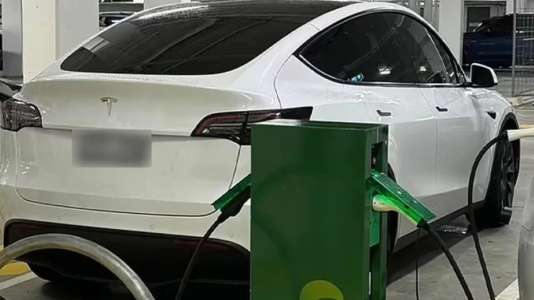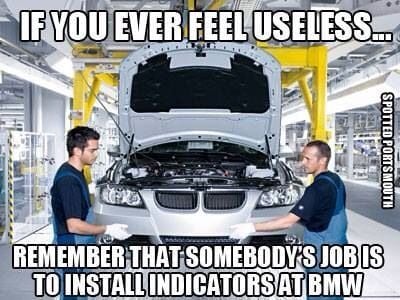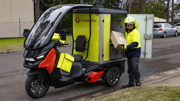Outrageous! See Why Everyone is Criticizing this Bizarre Tesla Incident at Woolworths
- Replies 16
As the world shifts gears towards a more sustainable future, electric vehicles (EVs) are becoming increasingly common on Australian roads. With this rise in popularity, however, comes a new set of challenges and etiquette that drivers must navigate. A recent incident involving a Tesla driver at a Woolworths carpark in Kirrawee, Sydney, has sparked a heated debate over the proper use of public charging stations.
The driver in question was spotted spending over four hours at a free charging station, comfortably watching movies in the front seat of their Tesla. This act of leisurely charging was met with backlash from the community, particularly from one Woolies shopper who took to social media to express their frustration. Accompanied by a photo of the Tesla parked at the station, the shopper's message was clear: 'If this is you, do the community a favour and slap yourself.'
The shopper's indignation stemmed from the belief that the charging station, provided for the convenience of Woolworths customers, was being misused. The charging station is intended to offer a quick top-up for shoppers' vehicles while they browse the aisles, not for prolonged use that could prevent others from accessing the service.

It's worth noting that a Tesla's charging time can vary, with some models requiring up to eight to ten hours for a full charge. However, the shopper pointed out that a Tesla Supercharger, capable of charging a car in just 20 to 30 minutes, was available 'literally across the road' from the Woolworths carpark.
This incident isn't isolated. Across Australia, the etiquette surrounding the charging of electric vehicles has become a contentious issue. In another case, a resident in Sawtell, NSW, caused a stir by running an extension cable across a footpath to charge their EV. This makeshift solution not only presented a tripping hazard but was also deemed a serious fire risk by an electrical engineer who happened upon the scene.
The growing pains of EV adoption are felt worldwide. In China, the government's aggressive push to dominate the electric vehicle market has led to accusations of 'cheating' in the global race for EV supremacy. With over US$231 billion (AU$347 billion) in subsidies over the past 15 years, China has fostered an environment ripe for innovation and manufacturing booms. This financial backing has enabled Chinese brands to flood international markets with affordable models, undercutting Western competitors.
Back home, the Electric Vehicle Council's 2023 report highlights a doubling in EV sales, with more than 180,000 electric cars now on Australian roads. Interestingly, the majority of these sales are occurring in outer metro and regional areas, suggesting a widespread acceptance of EVs across the country.
As we navigate this transition, it's essential for EV drivers to practice good charging etiquette. Public charging stations are a shared resource, and monopolizing them for hours on end is not only inconsiderate but also undermines the community's efforts to support sustainable transportation.
For our readers over 60, who may be considering making the switch to an electric vehicle, it's important to be aware of the etiquette and logistics involved. Charging at home overnight is often the most convenient option, but when using public stations, be mindful of others. Limit your charging to the time needed to shop or run errands, and always ensure cables are safely stowed to avoid hazards.
 We'd love to hear from you, our Senior Discount Club members, about your thoughts on electric vehicles and charging station etiquette. Have you encountered similar issues? Are you considering an EV for your next car purchase? Share your experiences and opinions in the comments below!
We'd love to hear from you, our Senior Discount Club members, about your thoughts on electric vehicles and charging station etiquette. Have you encountered similar issues? Are you considering an EV for your next car purchase? Share your experiences and opinions in the comments below!
The driver in question was spotted spending over four hours at a free charging station, comfortably watching movies in the front seat of their Tesla. This act of leisurely charging was met with backlash from the community, particularly from one Woolies shopper who took to social media to express their frustration. Accompanied by a photo of the Tesla parked at the station, the shopper's message was clear: 'If this is you, do the community a favour and slap yourself.'
The shopper's indignation stemmed from the belief that the charging station, provided for the convenience of Woolworths customers, was being misused. The charging station is intended to offer a quick top-up for shoppers' vehicles while they browse the aisles, not for prolonged use that could prevent others from accessing the service.

A Tesla driver sparked criticism for spending over four hours at a free charging station in a Woolworths carpark. Credit: Facebook
It's worth noting that a Tesla's charging time can vary, with some models requiring up to eight to ten hours for a full charge. However, the shopper pointed out that a Tesla Supercharger, capable of charging a car in just 20 to 30 minutes, was available 'literally across the road' from the Woolworths carpark.
This incident isn't isolated. Across Australia, the etiquette surrounding the charging of electric vehicles has become a contentious issue. In another case, a resident in Sawtell, NSW, caused a stir by running an extension cable across a footpath to charge their EV. This makeshift solution not only presented a tripping hazard but was also deemed a serious fire risk by an electrical engineer who happened upon the scene.
The growing pains of EV adoption are felt worldwide. In China, the government's aggressive push to dominate the electric vehicle market has led to accusations of 'cheating' in the global race for EV supremacy. With over US$231 billion (AU$347 billion) in subsidies over the past 15 years, China has fostered an environment ripe for innovation and manufacturing booms. This financial backing has enabled Chinese brands to flood international markets with affordable models, undercutting Western competitors.
Back home, the Electric Vehicle Council's 2023 report highlights a doubling in EV sales, with more than 180,000 electric cars now on Australian roads. Interestingly, the majority of these sales are occurring in outer metro and regional areas, suggesting a widespread acceptance of EVs across the country.
As we navigate this transition, it's essential for EV drivers to practice good charging etiquette. Public charging stations are a shared resource, and monopolizing them for hours on end is not only inconsiderate but also undermines the community's efforts to support sustainable transportation.
For our readers over 60, who may be considering making the switch to an electric vehicle, it's important to be aware of the etiquette and logistics involved. Charging at home overnight is often the most convenient option, but when using public stations, be mindful of others. Limit your charging to the time needed to shop or run errands, and always ensure cables are safely stowed to avoid hazards.
Key Takeaways
- A Tesla driver was criticised for spending over four hours at a free charging station in a Woolworths carpark, causing frustration among other customers.
- This incident highlights the broader issue of electric vehicle charging etiquette and infrastructure in Australia.
- In a separate case, a resident in NSW caused safety concerns by running an extension cable across a footpath to charge an electric vehicle, posing both a tripping and fire hazard.
- China is accused of 'cheating' in the electric vehicle market by spending a significant amount of money on subsidies to develop its EV industry and undercut Western rivals on price.








